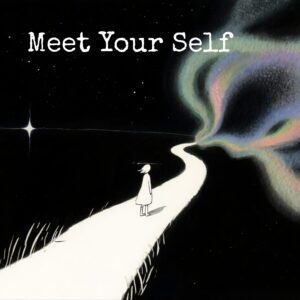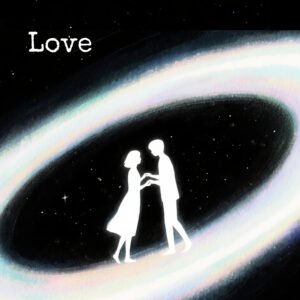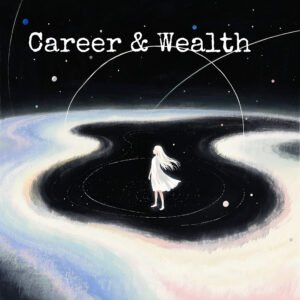Qi, Yin and Yang, and the Five Elements
In “Zhuangzi: Traveling to the North”, it is said that “the whole world is made up of one Qi”, which means that all things in the world are made up of “Qi”. It is an extremely subtle, fluid and changeable existence. The generation, development and change of all things are the result of the gathering and dispersion and movement of “Qi”.
When Taoists interpret the evolution of all things, they regard the initial chaotic and foggy world as “one”. With the wonderful changes, “one gives birth to two”, heaven and earth are separated, and yin and yang come into being.
From then on, all things in the world can be clearly divided into the yin or yang camp, such as the bright sunshine in the daytime is yang, and the quiet moonlight at night is yin; the scorching summer is yang, and the snowy winter is yin.
Yin and Yang has become an accurate summary of the attributes of the two opposing sides in interrelated things or phenomena. Although the two seem to be opposite, they are actually interdependent and mutually restrictive, and neither can be missing.
Yang descends from the sky, Yin emerges from the earth, and the combination of Yin and Yang gives rise to the Five Elements. The Five Elements are gold, wood, water, fire, and earth, the five elements that construct nature. The cyclical mechanism of generation and restraint between Yin and Yang and the Five Elements constitutes the source of power for all things.
Taoist Five Arts
Taoism is based on the philosophical concepts of Yin and Yang, the Five Elements, the unity of man and nature, and the law of nature, as well as theoretical tools such as the Book of Changes and the River Chart and Luoshu, forming a unique way of thinking that includes holistic and dialectical views. Based on this, the five Taoist arts were developed:
Immortal Arts: Cultivating the body and mind through taking medicine, using elixirs, etc.
Medical skills: Treating diseases and maintaining health through prescriptions, medicines, acupuncture, etc.
Fortune telling: predicting fate based on birth time and yin and yang and the five elements
Physiognomy: Analyzing good and bad luck from the perspectives of astrology, physiognomy, and Fengshui
Divination: predicting and handling things by fortune-telling, choosing auspicious days, and calculating the situation



